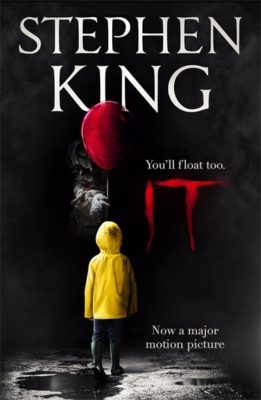An album full of tracks that weren’t deemed good enough for Load: it’s much better than that one was, needless to say. “Fuel” has some semblance of energy, although the guitars sound badly intonated. “The Memory Remains” has a solid set of melodic hooks. “Devil’s Dance” is actually a heavy metal song, although drawn from the Black Sabbath model rather than Slayer or Diamond Head. Every band at some point rips off the massive crawling bass riff from “Heaven and Hell”, and here’s Metallica’s turn. “The Unforgiven II” is very long but is ultimately the album standout, developing nicely and containing a good vocal performance for once.
Although the first half of ReLoad would be a good album if it came from a different band (I can’t disentangle it from the superior early Metallica), the rest of the album’s just filler. Seek ye not good music in this wasteland. The band themselves have probably forgotten that “Slither”, “Crappy Diem Baby”, “Prince Charming”, etc exist.
“Low Man’s Lyric” is a folk/country experiment that’s memorable in all sorts of wrong ways. It runs seven and a half minutes, contains one of the most annoying choruses ever raped into plastic, and features a hurdy-gurdy: an instrument I was happily unaware of until now. Stephen King’s book Hearts in Atlantis contains a digression on the traits of “low men” – they wear hats with feathers in them, whistle at women in the street, and so on. A trait he forgot to mention: they write songs with a hurdy-gurdy part. “Fixxxer” is another long one about Hetfield’s parental issues that isn’t particularly worth listening to.
The good: combine the good songs from Load and ReLoad, and you’d have an alright Spin Doctors album. The bad: re-read the last sentence.
No Comments »
In 1996, Metallica cut off something very important, a cosmetic feature that shouldn’t affect their music yet clearly did. Even now, they’re still recovering from this disastrous shearing.
I refer to the pointy ends of their logo. The self-titled album had them. This one doesn’t. As every heavy metal fan knows, this minor change is actually a musical circumcision of the worst sort, clipping the band of its masculine power.
Anthrax did it in 1995, and the made their worst album in 10 years. Iron Maiden did it in 1998, and made their worst album ever. Ten years later Judas Priest tried the same thing on Nostradamus, a 102-minute long conceptual yawner could be likened to the end of the universe: scientists think Nostradamus must someday end, but nobody’s listened for long enough to be sure. Can you think of a band that removed pointy bits from their logo and remained good? I can’t.
Load is the result of a huge amount of touring (the band played somewhere north of 350 shows in support of the self-titled), which apparently killed their interest in heavy metal altogether. Any semblance of thrash is gone, and so is most of the downtempo Ozzy Osbourne worship on the S/T. The best thing you can say about it is that it’s not a sellout. Maybe the public mistook its bluesy, Jimi Hendrix ripoffs for alternative rock and played it on college rock stations for a while, but it’s a throwback to 1976 from side to side.
“Ain’t My Bitch” rocks hard and showcases all the album’s flaws. Ulrich’s drums have a dull, popping quality with no body or sustain. Hetfield needs a vocal coach for his numerous speech impediments (bitch-AARRRGHH). Hammett’s wah pedal addiction is now at crippling proportions. The performance and production are both flat. The tremolo-picked riff in the chorus is the heaviest thing on the record, which is just sad.
“2 X 4” hardly seems to exist. I keep having to look at the tracklisting to remind myself it’s on there. A lot of the songs are like that – they’re extremely hard to talk about because they have no memorable features. Remember when a Metallica album had like, eight near-perfect songs that were each landmarks in their own way? That was good, but wouldn’t you rather have FOURTEEN really crappy ones?
Album highlights…I don’t know. “The Outlaw Torn”, probably. “Mama Said” would be a good ballad except for the loud slide-guitar lick – this is the song that probably inspired Manowar bassist Joey DeMaio’s infamous quip “I don’t listen to country music” when asked if he enjoyed Metallica.
The lowlight is the revolting “Hero of the Day”. Maudlin, noisy, and annoying, this song isn’t the hero of the next five minutes. “Ronnie” wants to have an Aerosmith-type swagger, but all it makes you want to do is listen to the actual Aerosmith.
The cover is blood and semen pressed between two slides of glass. This is fitting: Load is a tale of things out of their correct place. Blood belongs in our veins, semen belongs in our epididymis, and 95% of this record belongs in a bin marked FOR RECYCLING. Recommended for people who want to hear bad retro-style 70s rock half-assedly played by your dad. Metal fell very hard and very far in the 90s, and sadly, one of the very deepest troughs is marked by a band with Metal in its name.
No Comments »
A long book with a short description: “Gross Stuff(tm) happens to kids.” This, more than any other Stephen King book, is just a cavalcade of youngsters having traumatic experiences. Lest I be misunderstood, I fully endorse youngsters having traumatic experiences, but it does make for a book punctuated with lots of “what the fuck?” and “what am I reading?” and “why is this in the story?” and “do we need forensic-level analysis of all the boys’ penises?”
It is the archetypal Stephen King “big secret in a small town” story. There’s a lurking horror in the sewers, and ever twenty-seven years it emerges (usually in the guise of a clown) to kill children.
It feeds and gains power through fear, and in fictional Derry, there’s a lot to be afraid of. Even without the clown, it sounds like a miserable place to grow up. Daily life involves dodging switchblade-wielding bullies, gay-bashing homophobes, dog-murdering Klansmen (not kidding), pedophile lepers (still not kidding), and adults that tend to be so jaw-droppingly stupid that it’s amazing that they can tie their shoelaces.
The spotlight is on a group of middle-school children, who dub themselves “The Losers”. Their casting is familiar to any reader of 80s-90s young adult fiction: the Fat Kid (Ben Hanscom), the Asthma Kid (Eddie Kaspbrak), the Speech Impediment Kid (Bill Denbrough), the Screwball (Richie Tozier), the Jewish Kid (Stan Uris), the Black Kid (Mike Hanlon), and, of course, the Girl (Beverly Marsh). Denbrough has the most obvious connection to the monster – his younger brother was murdered by it – but in time, it will intricate itself in all their lives and personal traumas.
I enjoyed the quiet moments at the beginning, where the kids just hang out together. It isn’t all about pedophile lepers, and there are warm, funny, and nostalgic scenes that don’t contain any horror at all.
Soon, they are drawn into a battle against the monster in the sewers. They think they kill it, but twenty seven years, the murders begin again. The children (who aren’t children any more, and it’s hinted that whatever protective magic they once held may have ended), decide to return to Derry to destroy the monster for good. I sympathize with their cause, but honestly, is their hometown worth saving? Freeing Derry from It would be like exorcising a ghost from Camden, New Jersey. Even if you succeed, it’s not like that place will be anyone’s next holiday destination.
The exact nature of the monster becomes muddled in It‘s 1100-page length. At various points it’s suggested to be a projection of the town’s negative energy, a tulpa emerging from the fears and imaginations of children, a crashed UFO (?!?), a Lovecraftian abomination from the “multiverse”, a Manichean embodiment of the dark side (the light side is represented by a turtle), etc.
The clown is the monster’s iconic form, but it has many others, including a werewolf, a mummy, Frankenstein’s monster, and a disembodied eye. Stephen King seems to be paying homage to the Universal horror films, and trying to make them scary again.
He only “seems” to be, because like a lot of his 1980s work, he’s trying so many contradictory things that any central authorial vision gets lost. The Lovecraftian elements sit oddly with the Monster Mash stuff, and the “xTrEmE hOrRoR” Ed Lee pastiches don’t seem of a piece with the nostalgic Wonder Years scenes. It’s the definition of a mixed book, filled with ideas that sometimes work and sometimes don’t. An idea that works: the clown. An idea that doesn’t: the giant bird.
It was adapted at least twice, once as a miniseries starring Tim Curry, and again, more recently, as a pair of horror movies heavily derived from Stranger Things (which itself was heavily derived from It). Neither had the courage to film It‘s most infamous scene, which takes place in the sewers and would have earned either movie an NC-17 if filmed verbatim.
Anyone making any sort of It movie has chosen a hard row to hoe. The book is gigantic, and confusing, and sprawling. The clown Pennywise is one of the most marketable villains ever, but the rest of the book is kind of a mess. It’s the product of the relentless, manic energy King had the 80s – an accurate cover would list “Cocaine” as the book’s co-writer, and to be honest, I’m not sure that King’s name wouldn’t get second billing
(This, foremost among King’s work, must have been hard to look up on early search engines, which tended to reject searches for pronouns. As far as unfortunate titles go, It is even less searchable than The Who.)
No Comments »



